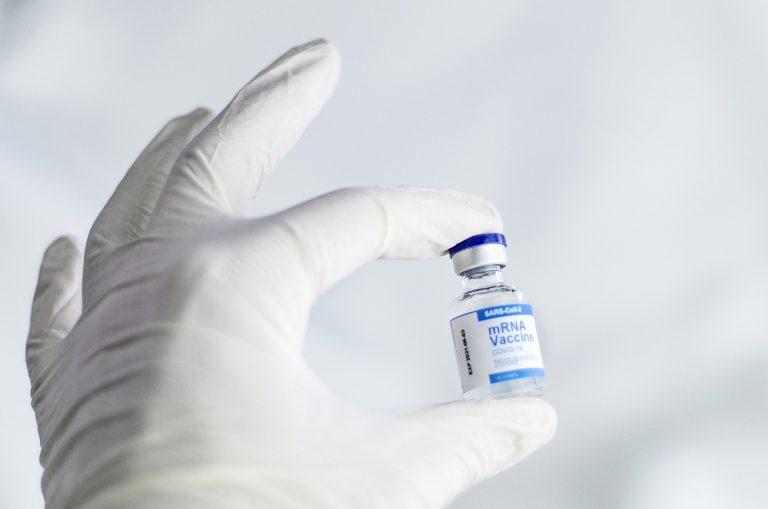Despite hundreds of thousands of adverse event reports, pharmaceutical company Pfizer has revealed plans to continue making its Coronavirus Disease 2019 (COVID-19) vaccines long-term, possibly even offering annual vaccines. Revenues this year are expected to top 26 billion dollars, a massive increase from the drugmaker’s 15 billion dollar forecast earlier, in large part due to the lucrative vaccine.
A net income of $4.88 billion was reported for the first quarter this year, up from $3.36 billion in the same period last year. Adjusted earnings soared 48 percent to $5.26 billion, with earnings per share far exceeding shareholder expectations. Total revenue was up 45 percent at $14.58 billion, which Pfizer described as “a tremendous start to 2021.”
Pfizer CEO Albert Bourla believes that COVID-19 will become endemic and require vaccine jabs for several years. In other words, there will be a “constant presence and/or usual prevalence of a disease or infectious agent in a population within a geographic area,” according to the Centers for Disease Control (CDC). The company will deliver 1.6 billion vaccines this year according to contracts signed in mid-April, and half of the profits will be shared with its partner, BioNTech.
“We also are in ongoing discussions with multiple countries around the world about their needs, and we expect these discussions to lead to additional supply agreements. Based on what we’ve seen, we believe that a durable demand for our COVID-19 vaccine – similar to that of the flu vaccines – is a likely outcome,” Bourla said in a statement. Pfizer will spend an additional $500 million this year researching vaccines based on mRNA technology.
On Friday, Pfizer-BioNTech initiated an application to the U.S. Food and Drug Administration (FDA) for full FDA approval of its COVID-19 vaccine for people aged 16 and older. In September, the companies will seek emergency use authorization (EUA) for kids aged 2 to 11. An application for EUA has already been filed for the 12-to-15-year-old group, with the FDA expected to make a decision early next week. In addition, the vaccine’s phase II safety data in pregnant women is scheduled to come out in July or August.
Success
You are now signed up for our newsletter
Success
Check your email to complete sign up
Pfizer is also conducting clinical trials for a third booster dose of its COVID-19 vaccine, which the company hopes will offer increased protection against mutant coronavirus variants. Bourla has claimed that a third dose will raise the body’s antibody response 10 to 20-fold. Storage capability is another active area of innovation, with a new Pfizer-BioNTech vaccine formulation that could potentially be stored from minus 70 to minus 50 degrees Celsius for up to six months.
Mounting concerns regarding adverse events
Despite Pfizer’s optimistic reports, many people remain apprehensive about COVID-19 vaccines due their abbreviated development timelines and unknown long-term side effects. For instance, Pfizer and BioNTech received EUA for their vaccine within 6 months of starting their first experimental trial. In contrast, the development timeline for vaccines has historically been between five and ten years.
According to the Vaccine Adverse Event Reporting System (VAERS) database managed by the CDC and FDA, there have been 118,902 adverse event reports after COVID-19 vaccination through April 23. The VAERS website states that while the database is “not designed to detect if a vaccine caused an adverse event,” the data can be used to “identify unusual or unexpected patterns” that require further investigation.
The VAERS reports include 3544 deaths, 8165 hospitalizations, 636 cases of anaphylaxis, 734 cases of Bell’s Palsy, 889 heart attacks, 152 miscarriages or stillbirths, 5782 severe allergic reactions, and 593 cases of thrombocytopenia or low platelet counts after doses of the Pfizer-BioNTech, Moderna, and Johnson & Johnson COVID-19 vaccines, predominantly in the U.S.
A new UK study published in The Lancet reported local side effects like itching, swelling, pain, and redness in two out of three people who received the Pfizer-BioNTech jab. Systemic side effects such as chills, fatigue, diarrhea, nausea, and headaches manifested in 13.5 percent of people after the first shot and in 22 percent of people after the second shot.
Nearly 21 percent of people aged 55 and below reported at least one systemic effect after receiving a jab. Women were more likely to report side effects after the first Pfizer-BioNTech dose than men, and side effects were found to be more common among individuals who previously had COVID-19.
“It is possible, although it remains to be tested, that this increased reactogenicity relates to increased immunogenicity… It has been shown that vaccines have increased immunogenicity in individuals with past infection and these people have higher antibody titers than those without previous infection,” the authors of the study stated.
















